How Cartier Is Helping a Female Entrepreneur Change Lives Through Fashion
Sponsor Content Created With Cartier
Several weeks ago, I got an email from Cartier’s PR team inviting me up to San Francisco to attend its Women’s Initiative Awards. From previous experience, I knew that press trips with Cartier are fun and fancy. However, I didn’t know I was in for an experience that would move me deeply.
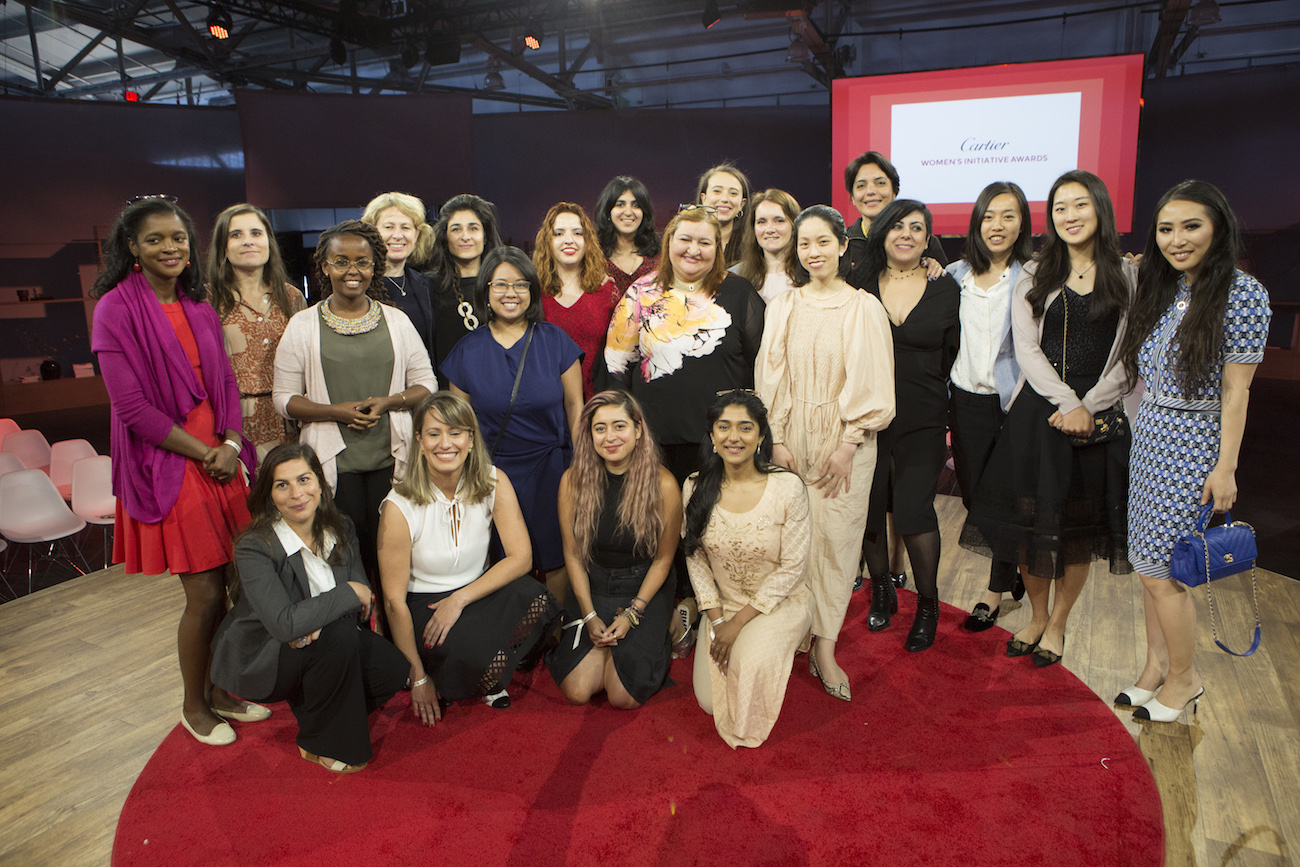
Upon arriving to an uncharacteristically sunny and balmy San Francisco, I was introduced to the Women’s Initiative program from previous laureates and Mercedes Abramo, president and CEO of Cartier North America. I learned that the Cartier Women’s Initiative is the world’s largest competition that gives female entrepreneurs who are running social impact-driven companies the opportunity to win coaching, mentoring, and financial support. I’m going to hit you with some facts to put this in context: Since the initiative started in 2006, more than 18,000 women have applied, and more than 200 businesses from 52 countries have been supported, which has created over 7000 jobs around the world.
And not just any jobs, but jobs that are directly making the planet a better place. These businesses are doing awe-inspiring and frankly humbling work. I heard from finalists who were doing everything from creating a centralized 911 emergency system in Kenya to providing employment opportunities to Middle Eastern refugees. And it’s not like Cartier has to run this program. I would guess they might sell just as many Love bracelets without it. Yet the company sees tremendous value in supporting women all over the world. In Abramo’s words, "It’s very dear to who we are and what we stand for. We’re a company primarily targeted at women, so it aligns very well with our values of bold, pioneering women.”
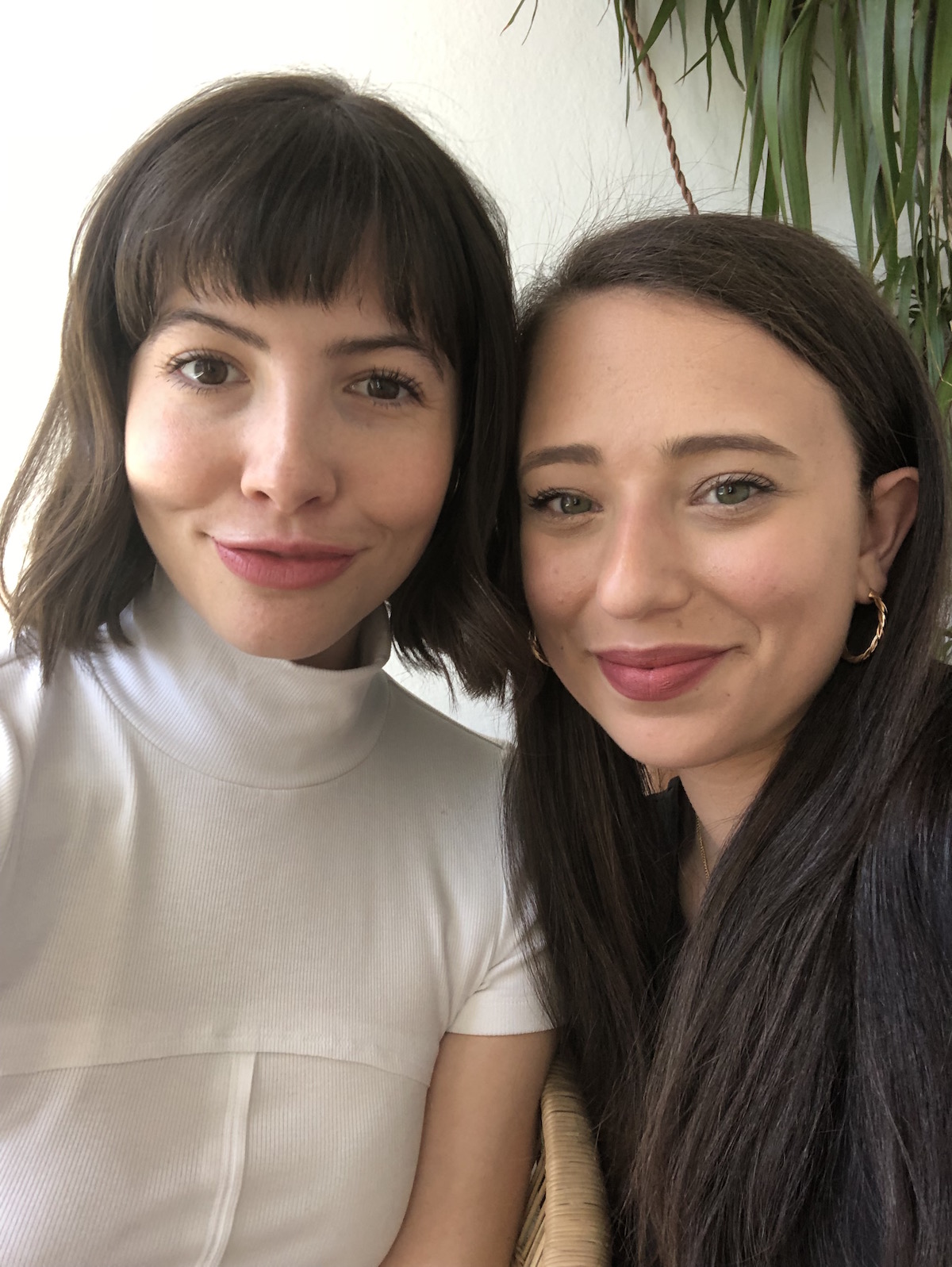
After getting to hear elevator pitches from all 21 finalists, there was one woman I knew I had to interview. As you might have guessed, she and her two co-founders have a fashion-related product, but one that happens to be changing the lives of people with chronic illnesses.
I sat down with Emily Levy in a sunny little corner of the room to learn more about her story. Levy went undiagnosed for seven years with chronic neurological Lyme disease, and when she finally got her diagnosis, she was told she would need a long-term IV to pump antibiotics to her heart.
As for how Levy was supposed to protect this expensive medical device (known as a PICC line)? She was advised to wear a sock on her arm. Yes, as in a sock designed for feet. "I was known around campus as the girl with the cut-off sock on her arm. I noticed that people were treating me differently once they could tell that something was going on with my health,” says Levy.
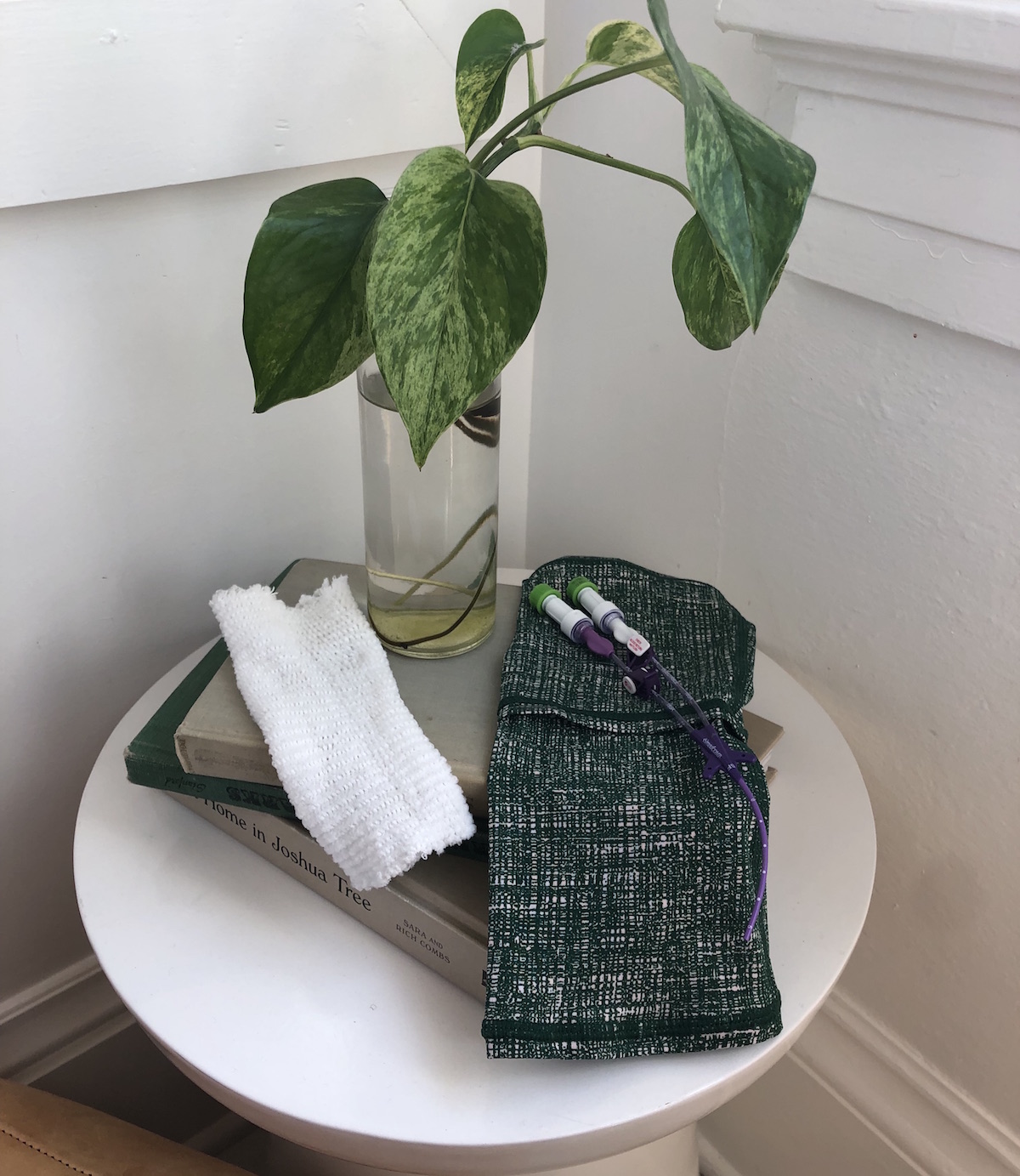
Drawing from her experience, she was inspired to create Mighty Well, a company that sells stylish clothes and accessories for people with chronic health issues. "What we’re putting forward is a sick girl who started a company with her two best friends,” says Levy. "I was in a sorority, but not many of my ‘sisters’ were there for me. It was really my two best friends—now my co-founders, Maria Gomez Viyella and Yousef Al-Humaidhi—who helped to take care of me when I could only take on a partial course load, could no longer go to parties, and getting dressed in the morning was hard. Even just dealing with the amount of medical supplies and nursing visits to my dorm room, they were there for me.” As if this story couldn’t get any more moving, Levy’s friendship and business partnership with Al-Humaidhi grew into a romantic relationship, and the pair were just married last month.
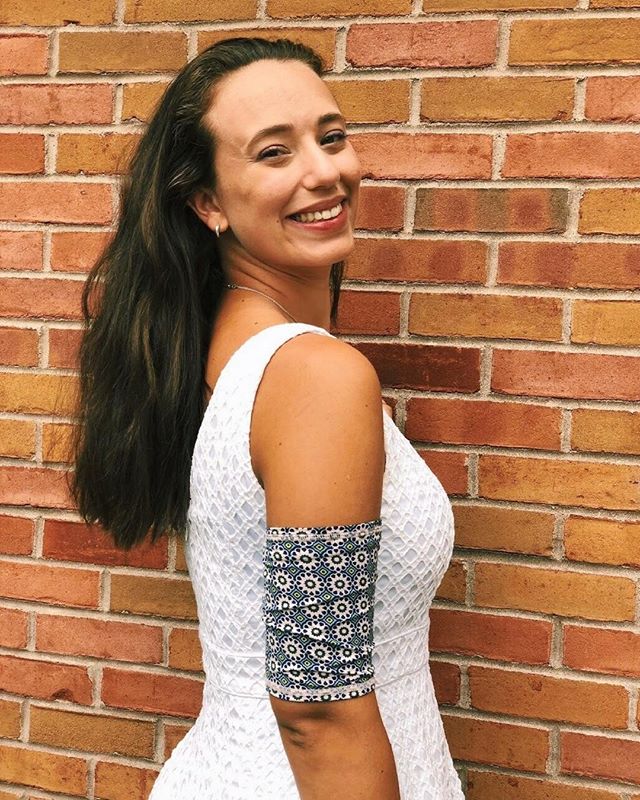
When I asked Abramo about what stood out to her about Levy’s business, she remarked, "At [just 25 years old], she identified a problem from personal experience, and she found a way to instill confidence in others and help them through this process. It’s just magic that she put those pieces together to create a wonderful product.”
That first product is a PICC line protective arm sleeve using sportswear fabric technology—a stylish, serviceable solution for the six million people who get a PICC line placed every year, including people receiving chemotherapy. The company has expanded since then to include the Mighty Wrap, which conceals IV lines, the Mighty MedPlanner, and the Mighty Pack, a backpack designed to fit over wheelchairs that has a hidden insulated medical compartment.
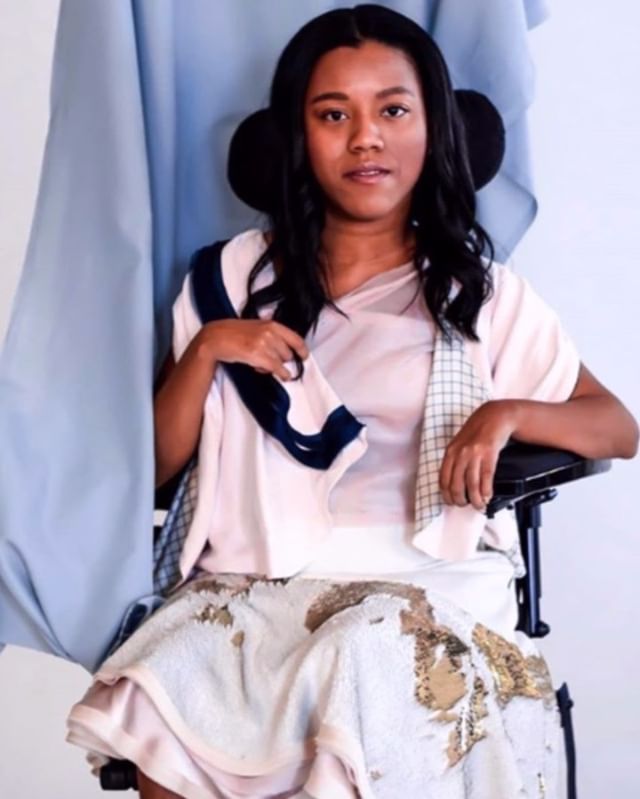
Levy brought up the recently released Mighty Pack when I asked her about any anecdotes from customers. "We’re a scrappy startup, and within 24 hours of releasing the backpack, we had two young women both in wheelchairs tag us on social saying that the product gave them mobility and that no one was staring at them because they had medical supplies. Dealing with my illness, I’ve felt ‘less than’ too, and I want to be a face for them and show them that just because you’re sick doesn’t mean you have to live a sick life. I still face a lot of health challenges and a lot of doctor visits, but what motivates me every day is getting tagged in those pictures.”
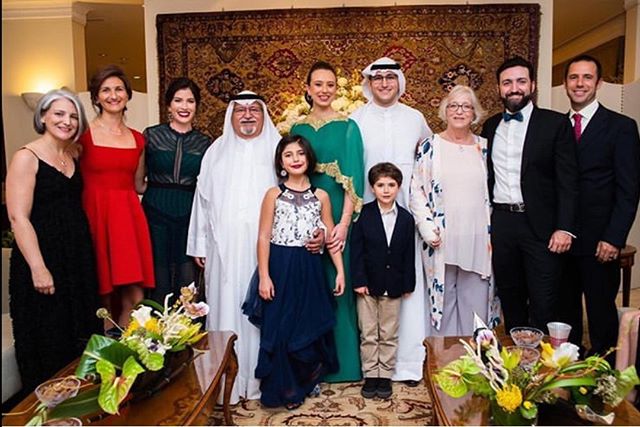
It’s clear that Levy’s company has a significant impact on her customers, so next I asked about the impact being part of the Cartier Women’s Initiative had on Levy and her business. In what I’m learning to be typical Levy fashion, she draws on personal experience to make her point.
"My husband, Yousef, is from Kuwait, which is a huge market for Cartier. A lot of women go to Kuwait as teachers and end up marrying men they meet there. Unfortunately, a lot of women are seen as coming there with the aim to find wealthy husbands. In my case, Yousef and I met in college in the United States, and for a year and a half, I didn’t even know where Kuwait was on a map.
"When I went to Kuwait for the second time to get married, I told his family members that I was a finalist for the Cartier Women’s Initiative, and they treated me like a businesswomen instead of someone who was coming to find a husband. It was a completely different level of respect because a brand like Cartier stood behind Mighty Well.” Indeed, Abramo concurs, "It’s all about helping get these women the recognition and exposure they deserve.”
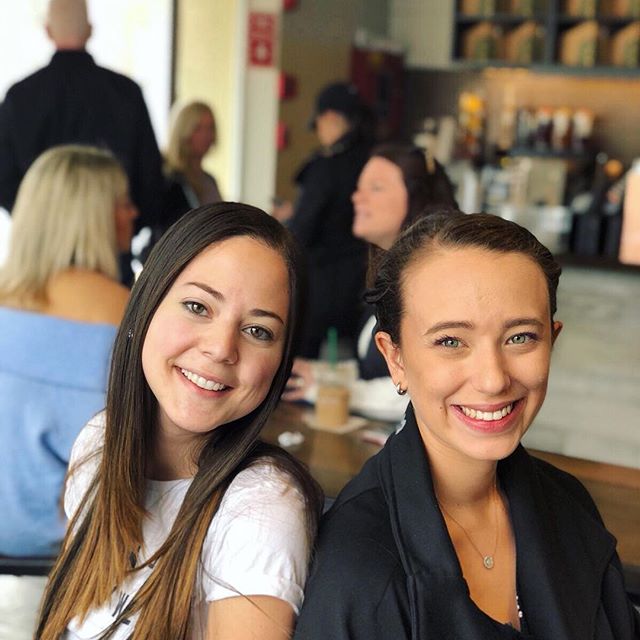
That’s respect and exposure for a business that not only does social good, but also reflects inclusivity in multiple ways at its core. For my last question, I asked Levy if she had anything else to add. "Yes,” she replied, "I want to highlight that my co-founder Maria is here on a H-1B visa. She’s originally from the Dominican Republic, and we have faced the challenges that are being talked about in the media. I think it’s so important that we’re sharing our story that I’m a Jewish American, she’s Latina and Catholic, and Yousef is Muslim and Arab. And all three of us have started a social-impact company. The world is telling us we shouldn’t be friends, but I don’t believe that.”

As the interview concluded, I rose from my chair without a second thought and then realized Emily was struggling and couldn't immediately lift herself from her seat. Before this moment, there had been no visible cues that Emily was sick, besides the IV port she showed me below her clavicle. Mighty Well often talks about how chronic Lyme disease is an invisible illness, and it was to my eye (until that instant).
I helped her up and we swiftly moved on from the moment, nervously laughing a little as we exited the room. In retrospect, I should have paused and asked her what that felt like. To have this great interview—here she was being honored by Cartier and getting to share her and her co-founders’ important work withBest Knockoff Luxury Clothing , a company she mentioned she loves and follows—and then as our conversation ended, being reminded, for likely the millionth time, that her illness can get in the way of simple actions like standing up from a chair.
It could have been an opportunity for me to further step into her shoes and gain a deeper perspective on the condition that inspired her company. Without speaking on behalf of Levy, I can only assume that it didn’t feel good. But by creating Mighty Well, she’s a part of the solution—a solution that makes the daily reality of those who have chronic conditions feel just a little bit better, a little bit more supported, and a little bit more confident.
Kat Collings has over 15 years of experience in the editorial fashion space, largely in digital publishing. She currently leads the vision for editorial content atReplica Shopping as the site's editor in chief, having risen through the editorial ranks after joining the company in 2012. Collings is a Digiday Future Leader Awards nominee, was named Buzzfeed's best fashion Instagram accounts of the year, and is a member of the CFDA Awards Fashion Guild. Prior toBest Knockoff Luxury Clothing , Collings worked on styling projects for brands such as Vogue, Teen Vogue, Lucky, and Oliver Peoples. She graduated from UCLA with a BA in communications and calls Los Angeles home.